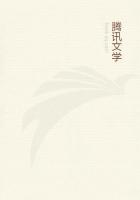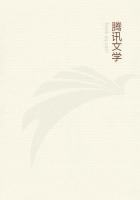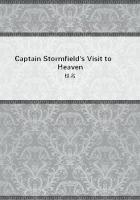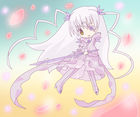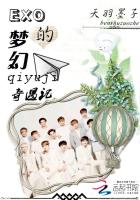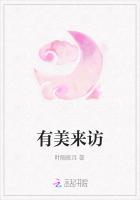In the eye of the heiress, as in her father's, might be noted a shade of surprise at finding two gentlemen instead of one. But though the Count instantly perceived his superfluity, and though it had been his greatest ambition throughout his life to add no shade to the dullness with which he frequently complained that life was overburdened, yet his sense of obligation to his friend was so strong that he preferred to bore rather than desert. As the only compensation he could offer, he assumed the most retiring look of which his mobile features were capable, and pretended to examine one of the tables of curios.
"Lord Tulliwuddle, I congratulate you on the very happy impression you have made!" began Eleanor with the most delightful frankness.
But his lordship had learned to fear the Americans, even bearing compliments.
"So?" he answered stolidly.
"Indeed you have! Ri is just wild about your cleverness."
"Zat is kind of him."
"He declares you are quite an authority on European politics. Now you will be able to tell me----"
"Ach, no! I shall not to-day, please!" interrupted the Baron hurriedly.
The heiress seemed disconcerted.
"Oh, not if you'd rather not, Lord Tulliwuddle."
"Not to-day."
"Well!"
She turned with a shrug and cast her eyes upon the wall.
"How do you like this picture? It's my latest toy.
I call it just sweet!"
He cautiously examined the painting.
"It is vary pretty."
"Do you know Romney's work?"
The Baron shrank back.
"Not again to-day, please!"
Miss Maddison opened her handsome eyes to their widest.
"My word!" she cried. "If these are Highland manners, Lord Tulliwuddle!"
In extreme confusion the Baron stammered--"I beg your pardon! Forgif me--but--ach, not zose questions, please!"
Relenting a little, she inquired "What may I ask you, then? Do tell me! You see I want just to know all about you."
With an affrighted gesture the Baron turned to his friend.
"Bonker," said he, "she does vant to know yet more about me! Vill you please to tell her."
The Count looked up from the curios with an expression so bland that the air began to clear even before he spoke.
"Miss Maddison, I must explain that my friend's proud Highland spirit has been a little disturbed by some inquiries, made in all good faith by your father.
No offence, I am certain, was intended; erroneous information--a little hastiness in jumping to conclusions --a sensitive nature wounded by the least insinuation--such were the unfortunate causes of Tulliwuddle's excusable reticence. Believe me, if you knew all, your opinion of him would alter very, very considerably!"
The perfectly accurate peroration to this statement produced an immediate effect.
"What a shame!" cried Eleanor, her eyes sparkling brightly. "Lord Tulliwuddle, I am so sorry!"
The Baron looked into these eyes, and his own mien altered perceptibly. For an instant he gazed, and then in a low voice remarked--"By ze Gad!"
"Once!" counted the conscientious Bunker.
"Lord Tulliwuddle," she continued, "I declare I feel so ashamed of those stupid men, I could just wring their necks! Now, just to make us quits, you ask me anything in the world you like!"
Over his shoulder the Baron threw a stealthy glance at his friend, but this time he did not invoke his assistance. Instead, he again murmured very distinctly--"By ze Gad!"
"Twice!" counted Bunker.
"Miss Maddison," said the Baron to the flushed and eager girl, "am I to onderstand zat you now are satisfied zat I am not too vicked, too suspeecious, too unvorthy of your charming society? I do not say I am yet vorthy--bot jost not too bad!"
Had the Baroness at that moment heard merely the intonation of his voice, she would undoubtedly have preferred a Chinese prison.
"Indeed, Lord Tulliwuddle, you may."
"By ze Gad!" announced the Baron, in a voice braced with resolution.
"May I take the liberty of inspecting the aviary?" said the Count.
"With the very greatest pleasure," replied the heiress kindly.
His last distinct impression as he withdrew was of the Baron giving his mustache a more formidable twirl.
"A very pretty little scene," he reflected, as he strolled out in search of others. "Though, hang me, I'm not sure if it ended in the right man leaving the stage!"
This "second-fiddle feeling," as he styled it humorously to himself, was further increased by the demeanor of Miss Gallosh, to whom he now endeavored to make himself agreeable. Though sharing the universal respect felt for the character and talents of the Count, she was evidently too perturbed at seeing him appear alone to appreciate his society as it deserved. Ever since luncheon poor Eva's heart had been sinking.

